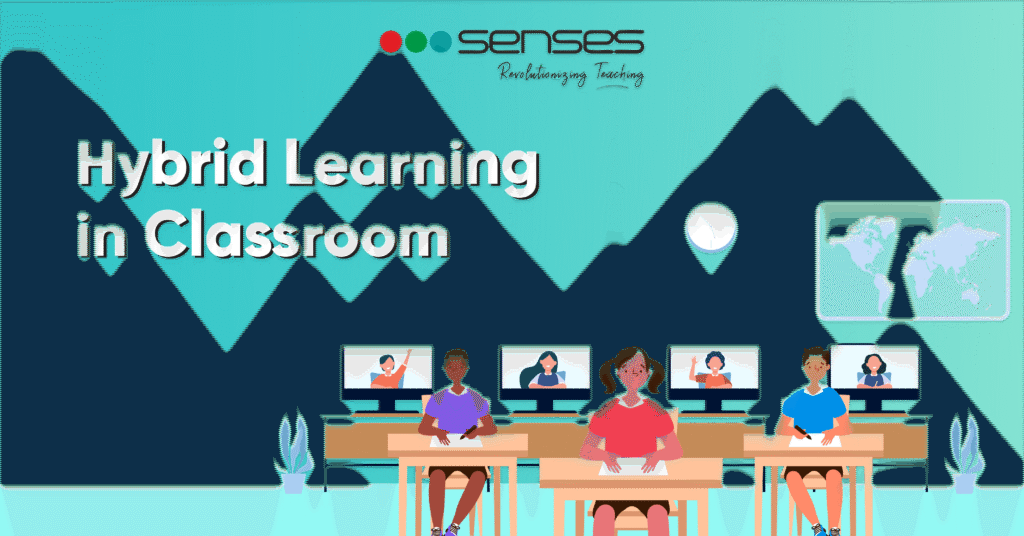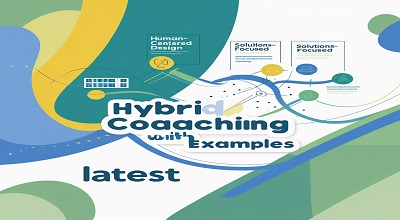Hybrid Coaching Models
Hybrid Coaching Models: The landscape of coaching has evolved significantly in recent years. Traditional one-on-one sessions are now complemented by innovative approaches that blend in-person interactions with digital tools and platforms.
This fusion has given rise to hybrid coaching models, offering a more flexible, scalable, and personalized coaching experience. In this comprehensive guide, we will explore the concept of hybrid coaching, its various models, benefits, challenges, and provide real-world examples to illustrate its application.

Understanding Hybrid Coaching
Hybrid coaching refers to a coaching approach that combines traditional face-to-face interactions with digital tools and platforms to deliver a comprehensive coaching experience. This model leverages the strengths of both in-person and online coaching to provide flexibility, accessibility, and personalized support to clients.
Core Components of Hybrid Coaching Models
A successful hybrid coaching model integrates several key components:
- In-Person Sessions: Face-to-face interactions that build rapport and trust.
- Virtual Coaching: Online sessions via video conferencing tools.
- Asynchronous Communication: Email, messaging apps, or recorded videos for ongoing support.
- Digital Resources: Access to online courses, worksheets, and tools.
- Community Engagement: Online forums or groups for peer support and networking.
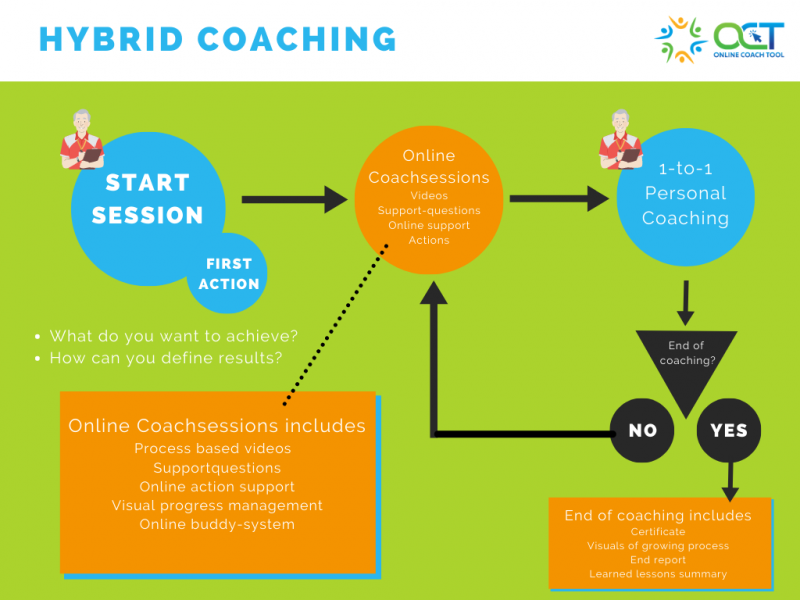
Popular Hybrid Coaching Models
1. Blended Learning Model
Combines online educational materials and opportunities for interaction online with physical place-based classroom methods. This approach allows students to have some control over time, place, path, or pace of their learning.
2. AI-Human Hybrid Coaching
Integrates artificial intelligence with human coaching to enhance the coaching process. AI can analyze data and provide insights, while human coaches offer personalized guidance and support.
3. Corporate Hybrid Coaching
Tailored for organizational settings, this model blends in-person workshops with online modules to develop leadership and team skills. It supports remote and hybrid work environments by providing flexible learning options.

Benefits of Hybrid Coaching
- Flexibility: Clients can choose the mode of interaction that best fits their schedule and preferences.
- Scalability: Coaches can reach a larger audience without compromising the quality of service.
- Personalization: Tailored coaching plans that address individual needs and goals.
- Accessibility: Clients from different geographical locations can access coaching services.
- Cost-Effectiveness: Reduces the need for extensive travel and allows for a mix of free and paid resources.
Challenges and Considerations
Real-World Examples
1. Barbell Logic
A fitness coaching platform that combines in-person sessions with online coaching. After a client attends a squat or deadlift session, the coach sends a video summary with feedback and tips. This approach enhances client engagement and provides continuous support.

2. Elev8 Daily
Offers a hybrid coaching model that includes group coaching, a membership area with content, and personalized one-on-one sessions. This model has helped coaches increase their revenue without additional work by leveraging digital tools.
3. Integrative Counsel
Combines coaching principles with counseling to help clients live purposefully. This hybrid life coaching model blends therapeutic approaches with goal-oriented coaching to address both past issues and future aspirations.
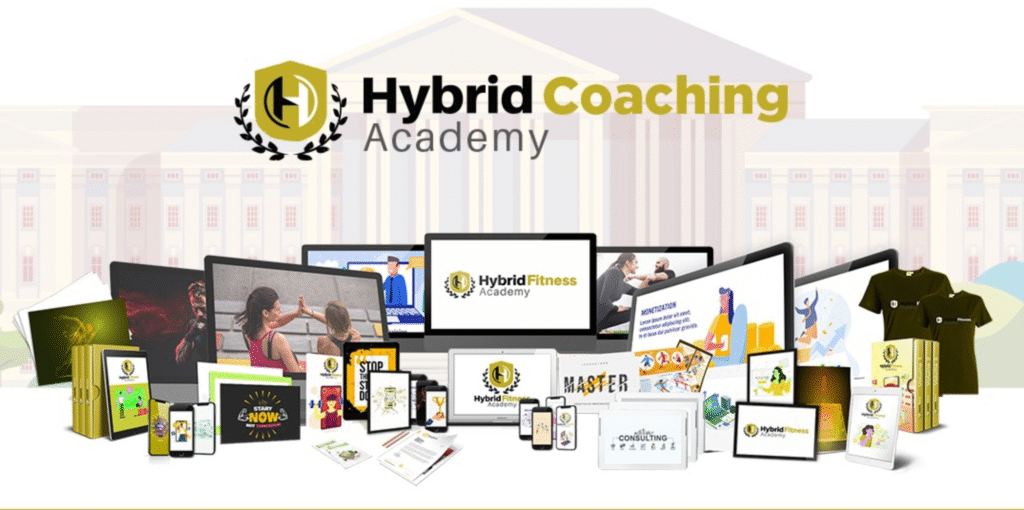
Implementing a Hybrid Coaching Model
To successfully implement a hybrid coaching model:
- Assess Client Needs: Understand the preferences and requirements of your clients.
- Choose Appropriate Tools: Select digital platforms that facilitate communication and resource sharing.
- Design a Structured Program: Create a coaching plan that integrates both in-person and online elements.
- Provide Ongoing Support: Ensure continuous engagement through regular check-ins and feedback.
- Evaluate and Adapt: Regularly assess the effectiveness of the coaching model and make necessary adjustments.

Future Trends in Hybrid Coaching
- Integration of Virtual Reality (VR): Enhancing immersive learning experiences.
- Increased Use of AI: For personalized coaching and data analysis.
- Expansion of Online Communities: Fostering peer support and networking.
- Focus on Mental Health: Incorporating wellness practices into coaching programs.
Conclusion
Hybrid coaching models represent the future of personalized learning and development. By combining the best aspects of in-person interactions with the convenience of digital tools, coaches can offer more flexible, scalable, and effective services. As technology continues to evolve, the potential for hybrid coaching to transform the coaching landscape is immense.
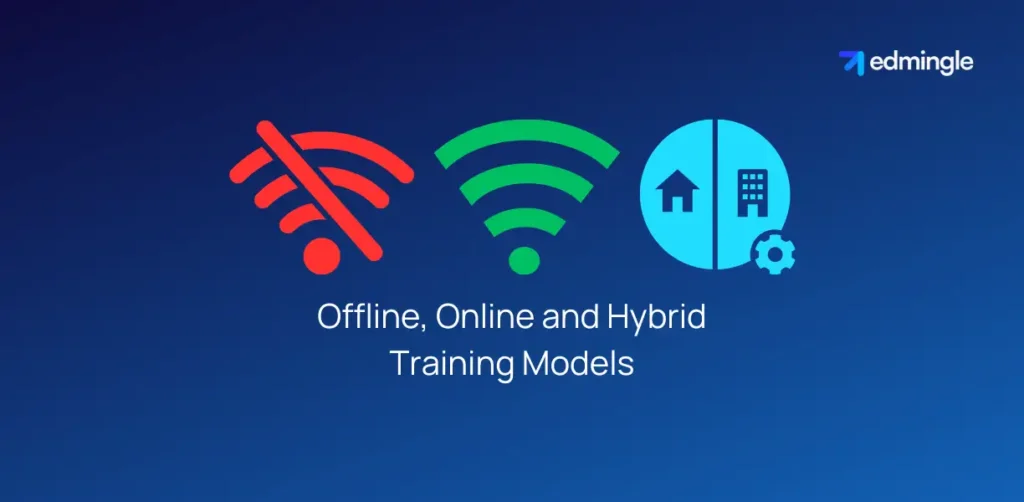
FAQs
1. What is hybrid coaching?
Hybrid coaching is a model that combines traditional in-person coaching with online elements to provide a flexible and personalized coaching experience.
2. How can hybrid coaching benefit clients?
It offers flexibility, accessibility, and personalized support, allowing clients to choose the mode of interaction that best fits their needs.
3. What are the challenges of hybrid coaching?
Challenges include technology barriers, maintaining client engagement, privacy concerns, and ensuring consistent quality across different modes.
4. Can hybrid coaching be implemented in corporate settings?
Yes, hybrid coaching is effective in corporate settings, supporting remote and hybrid work environments by providing flexible learning options.
5. What are the future trends in hybrid coaching?
Future trends include the integration of virtual reality, increased use of AI, expansion of online communities, and a focus on mental health and wellness.
Free Link: TEKKEN™ APK
